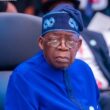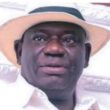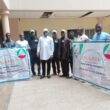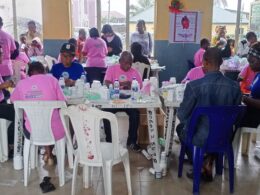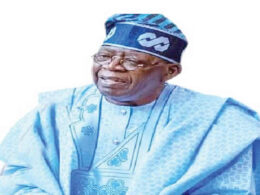By Orluwene Orlumanti
In recent time, there are arguments of origin of some ethnic nationalities in Nigeria, which if care is not taken might lead into different things.
It is only in Nigerian that the question of ethnicity and origin is taken to a different dimension. It is only in Nigeria that an ethnic group would tell another its origin without agreement with its own account. This I call a deprication and embarrassment. For instance, a case at hand is that of the Igbo vs. Ikwerre ethnic nationalities of Nigeria. The Igbo says that Ikwerre is Igbo, but the Ikwerre says “NO” I am not. I am a different ethnic nationality entirely. In fact, I trace my origin to ancient Benin kingdom in Nigeria.
Going through the argument, I could see that the Igbo hinged their claims on linguistic evidence. However, linguistic evidence is not the only parameter to judge the identity/origin of a tribe or ethnic nationality. There are several variables to determine on identity of a people/tribe but let me focus on the language variable as an example. We see in “English Grammar Composition & Correspondence”, Chapter 1 page 1 by Pink Thomas (1970)
From the foregoing, we could see that no language is static or authocthonic. It evolves as time goes on. We could see groups of languages in the European world yet none claims another because elements of one language are found in the other. English, which was highly influenced by several other tongues was never claimed by the tongues that influenced her rather the borrowings became strength to the English to develop to this current form or status. It is only in Nigeria especially the ignorant ones in Igbo land that equate language with ethnicity, simply because elements of their language are found in Ikwerre language. Their argument is that as long as Ikwerre people bear Igbo names and some other elements of Igbo, Ikwerre is Igbo. This brings us to the question of origin/migration.
According to the definition by AI, Migration “refers to the movement of individuals or groups from one place to another, often involving a change of residence, region or country. This movement can be voluntary or forced, and may be motivated by various factors such as:
- Economic opportunities or challenges, trade and commerce.
- Political persecution or conflict
- Environmental factors like climate change or natural disasters
- Social or cultural reasons, like marriages, family or education
- Refugee status or asylum seeking
Migration can have significant imparts on both the individuals involved and the communities they are leaving and joining, shaping demographics, cultures, economies and societies in complex ways: whenever someone decides to migrate to somewhere else he has set on a decisive journey, the end of which he might not know.
As he sets on the journey, everything about him is prone to changes; his physical body morphology, cultures, language etc.
Thus in the identification of a group’s origin, language should not be the only or main yardstick. There are other variables such as dancing, mode of dressing and culinary, burial, marriage and rites of passage and admission into the society that should be taken into consideration.
A group speaking the same language with another group does not mean that the groups are the same people. For example the Danish language is 95% Swedish. But the two are fiercely ethnolinguistic and ethnocentric. Your groups might belong to the same language group but different in origin likewise you might be speaking different languages but belong to the same ethnic–nationality. For instance, during research carried out on the endangered languages in Nigeria in 2009, there was a place visited in Rivers State at Nkoro District in Opobo/Nkoro LGA. It was discovered that two languages are spoken at the Nkoro District. Kirike (Nkoroo) and Defaka (Afakani). Both are Ijoid dialect that are not mutually intelligible. Kirike is the only language all the Defaka people can understand without an interpreter. The case of Defaka is severe and needs urgent attention.
Meanwhile history has it that the progenitors of Nkoro and Defaka were friends who were fishermen. They came from Yenagoa area of present Bayelsa State. A day like any other day before they went on fishing expeditions and at a point decided to explore the river further and eventually landed at this present abode. Subsequently, that gave him the leadership of the area whenever the two met. They came from the same area, migrated on the same day. They spoke the same language but today, the siblings of Defaka have lost their language. These were two friends who spoke same language when they were migrating. The question is: Will Nkoro people claim that Defaka people migrated from Nkoro? These are two clans that are jointly living on the same island that nobody would hardly know when he crosses/enters into the other’s territory unless he is told. Again, according to the study (documentation of Nigerian endangered languages and cultures, 2009), the Rindie in Nasarawa State is declining fast due to the impact of Hausa. Ake also in Nasarawa State is highly endangered. Gwandara in Nasarawa State is a language in retreat. In Plateau State, other languages that are highly endangered but not included on the UNESCO list are Rukul, Mabo, Mwa, Tahoss, Garang, Firan, Nincut, Guta, Jipal, Koenem, Chakfem, Kanam, Njak and most of the East Kainji languages found north of Jos. Yuom is being threatened by Tarok and by tomorrow if Yuom is subsumed by the predator – Tarok, then the Langtang people will come to claim Yuom as Tarok (Yuom speaking people are Tarok) and Hausa will claim others earlier mentioned for no cogent reason other than their languages went into extinction in cause of their interactions with them, the Hausas or Tarok speaking people (Langtang). Unlike the peoples mentioned above, Ikwerre’s situation with Igbo is very hopeful because many Ikwerre indigenes are quite concerned about the revitalisation of Ikwerre language. For instance, the complete Holy Bible has been translated into Ikwerre language and is being read in churches and homes. Being grouped as Igboid does not necessarily make it Igbo. Just like: Bassa – Nupoid. In fact, Standard Ikwerre as defined by Prof Kay Williamson, is: “The form that is generally understood, and which is distinctive for Ikwerre as opposed to Igbo.”
Ebira-Nupoid spoken by Gade in Nasarawa State is Nupoid just like Gbagyi-Nupoid. Now based on the analyses given, will Nupe come to claim that Ebira in Kogi State, Gade in Nasarawa State and Gbagyi (Gwarri) in Niger, Nasarawa, Federal Capital Territory, and Kaduna State are Nupe simply because their languages are Nupoid? Recent research findings reveal that a great majority of the languages of the North–Central region of Nigeria are in the endangered list of disappearing in the few decades to come. For instance, in Plateau, Yangkan has less than 100 speakers who are competent in the language. Apart from languages, the cultures of all the peoples of the North-Central region are highly endangered due to the influence of Hausa. Per adventure, Hausa will come to claim them because of losing their language and culture to them. This is happening because of their interaction with them and Hausa’s influence on their languages and cultures as well as their numerical strength.
In another historical perspective, alluding that Ikwerre is Igbo is complete farce, going by the origin of the following tribes; History has it that Idoma, Igala, Jukun, Chamba and Kuteb are from Kwarrafa Kingdom. Kwarrafa Kingdon was situated in the present Jukun area of Taraba State. Idoma is now a tribe in present Benue State and speaks “Idoma”. Igala in Kogi State speaks Igala while Jukun, Chamba and Kuteb are in Taraba. Jukun, Chamba and Kuteb understand one another because they speak the same tongue yet they claim being different tribes from one another.
Efik, Annang and Ibibio in Akwa-Ibom and Cross River States understand one another because they have linguistic affinity yet they are known as different and separate tribes from one another. Why is it that the case of Ikwerre and Igbo is different? In another scenario Hutu and Tutsi are in Rwanda and they understand themselves because they speak the same tongue yet they are completely different tribes. Who came from who between them?
The first History about the Yoruba said that the progenitor Oduduwa came from sky with his staff and fell onto his present abode at Oyo (Prof. Ade Ajayi) while another school of thought has it that the Yorubas came from Egypt and another has it that they came from Yemen with Kanuri people. That means the Yorubas and Kanuri are related. The Yorubas found themselves in Western region of Nigeria while the Kanuris are found in the North-East region of Nigeria. Kanuri is found in Borno and Yobe States of North-East region of Nigeria, which is unique because it is one of the most linguistically diverse regions in the country. It is the meeting point of the three great African linguistic phyla found in the country: the Afro-asiatic Phylum, the Nilo-Saharan Phylum, and the Niger-Congo phylum. These groups are intermingled because they have had some kind of contact (overlapping of populations) over a long period of time. The various contacts violent and peaceful took place in this region of the country which by virtue of its geography and topography, became unique in the country. This area is therefore one of the geographical areas of Nigeria richest in languages. It has intriguing socio-linguistic consequences, such as the frequent dissimilarity between the culture and language of particular groups. According to how broadly the area is defined, it consists of some 100 languages known to exist or to have existed.
As I was saying, Kanuri does not understand Yoruba neither does Yoruba understands Kanuri yet they came from the same source. Kanuri language belongs to Nilo-Saharan Phylum and Saharan family. Another question is: Why are they not speaking the same language since they migrated from the same source? Why are they two different tribes? Is it because of language or their cultures?
Hausa: the origin of modern Hausa is traced to a man called Bayajidda. History has it that “Bayajidda killed a mysterious snake that has prevented the people from having access to water in the well but only on Fridays. Because of this, the queen married him and they gave birth to seven children known as Hausa Bakwai. It should be known that the queen had another seven children previously with her late husband” and according to tradition Nupe, Gbagyi and Ilorin among them. In today’s contemporary world, does Nupe, Gbagyi and Ilorin etc, speak Hausa language. It is said that Gbagyi language is Nupoid, and Nupe does not claim that Gbagyi is Nupe.
Onitsha: Igbo claims Onitsha as Igbo but is it true? The true story is that Onitsha is not. Onitsha history says that the progenitor of Onitsha was brother of Oduduwa, who came with him to Ife, their first port of call and later migrated to Benin before the present place of abode. Their culture is not the same as Igbo’s. Naturally their mode of dressing is not the same. One should try to watch their Ofala festival and when the Obi dances as well as their women and cultural attitudes, etc. Again, Igbo claims Onitsha to be Igbo basically because of language. Onitsha was highly influenced language wise. The saving grace is its other cultural perimeters, which have not been tempered with. For doubting Thomases, after the current Oba of Benin, Oba Ewouare II testified in Port Harcourt on 14/1/2020 that Ikwerre, Ekpeye and Ogba came from Benin, he went further in 2021 to say that the influences of Benin reached Onitsha too.
Igbo is one of the three (3) major tribes in Nigeria. It was the largest ethnic group in the former Eastern Nigeria. It is arguably the richest tribe in African: of the three (3) major tribes namely: Hausa, Yoruba and Igbo. It is the only tribe that could not unravel its origin on time, if it really has. It is the only tribe that is visibly claiming what does not (other tribes) belong to it. Its argument and assertion is basically on language and name bearing.
Igbo in accordance to its history of origin released in this 21st century claims to come from Israel. (They claim they originated from Jews) without any other tribe scooping the authenticity of its claim. This is because, it is of insignificant value. It is inconsequential because no tribe is interested on its origin. Israeli doctors came and collected their blood samples and found no DNA proof of their claim. We are in a new world, which is continuously evolving. With look of things, the uppermost problem the Igbo has for now is how Ikwerre is Igbo. Reason? Its language is Igboid and bear Igbo names. As long as its language is Igboid, therefore it is Igbo. Igbo claiming and asserting that Ikwerre is Igbo because its language is Igboid or outright Igbo names but these have to be known about Igbo and their accusation of Ikwerre not having or retaining any of the old Benin names. Ikwerre retains some old Benin names like Osa, Ossai. Orduwa, etc.
Truth is, Rt Rev Hubert Tugwell, the Anglican Bishop on the Niger in 1913 came to Ikwerreland to test out the newly published Union IBo Bible Nso because it was resumed that Ikwerre people are Igbos. But to their biggest surprise Ikwerre people did not understand the Igbo Bible. So they went back to Enugu and enacted a 3-fold language policy:
- To teach Igbo compulsorily in all primary schools East of the Niger
- Use only Igbo language in all churches Anglican and Catholic for songs, prayers, hymns, catchism, Bible reading and study so as to make Igbo dominate or become the lingua franca.
- Use some force to make Ikwerre people speak Igbo and stop speaking Ikwerre. Personal and family names, village and community names or landmarks were changed to Igbo names. This is how the pristine and original Ikwerre names and words were changed, and Ikwerre language was assimilated by Igbo. It was in December 1965 before the Civil War that Ikwerre made the “Rumuomasi Declaration” that “They are neither Ijo nor Igbo.” Therefore Ikwerre should revert to its original, pristine names. So they changed community names from Umuola to Rumuola, Umucheta to Rumuokwuta, etc. Changed personal names from Ofonda to Owhondah, etc.
Igbo says that they migrated/came from Jew, which means it is a Hebrew. Jews are mainly in the Middle East especially in Isreal. Literatures have it that the Jews and Arabs are related as children of Abraham (Isaac and Ishmael) thus they were supposed to speak the same language because they came from the same source. History has it that the languages spoken over there are: Hebrew and Arabic. Igbo has the audacity to accuse. Ikwerre. Ekpeye and Ogba of speaking Igbo when it does not speak Hebrew or Arabic: Igbo does not bear Jewish names such as: Rabin, Ishak, Netanyahu, Menachim, Begin and Yeshua, etc. yet it accuses Ikwerre of bearing Igbo names some of which were forced on them. Can Ndi-Igbo prove that the names were not assimilated? Is it because of their numerical strength over Ikwerre? They mean that they did not borrow from Ikwerre too? Wonders shall never end!
IKWERRE is an ethnic-nationality situated in Rivers State of Nigeria. It is located in the Niger-Delta region of South-South Nigeria. It is the bone of contention and subject of discourse. I do not want to go into the history of migration of Akalaka – the father of Ihuroha (Ikwerre), Ekpeye and Ogba for there are several literatures about it.
The migration of Akalaka (father of Ikwerre) from Benin to his present place of abode is not a sudden flight but rather an Odyssey. He left Benin purely to avoid political persecution and conflict.
As he was moving along the way he would be encountering obstacles. Some he could evade but some he could not. For him to scale through he must give out something. For instance, the insinuation or accusation that if Ikwerre is not Igbo why did he not retain some of his own words spoken while in Benin? Same question should be asked the Esans, Urhobos, Isokos, Itshekiris, Udekamas, Egenes, etc who migrated from old Benin about the same time with Akalaka. History has it that there was a policy of not speaking Bini as they were fleeing from Ewuare the Great or risk exposure to the Oba who was doing everything he could to stop their escape. Igbos forget that time evolves and changes too. Do the accusers and rabble rousers think that it was an easy journey. For instance, history has it that Akalaka when he was escaping for his dear life at a point stopped over at Aboh, Delta State, on the western shores of the Niger, where he married a second wife in order to be accepted by the people, and she gave birth to Ogba, and he co-habited with the indigenes/natives. Most of his household of slaves and servants were Igbo-speaking and that is where the assimilation of his native Bini language started.
The interference of other highly popular cultures would definitely affect his and this is why language cannot be the only peremeter or variable to judge the identity or origin of a tribe, race or nation. One thing about migration that can be noticed is that some people migrated and arrived in the morning, some arrived at noon and some in the evening or night. No matter when you arrive, there are bound to be culture shocks.
Igbo used the instrument of education, Christianity and government to advance the course of their language domination of Ikwerre. They used these many strategies to intimidate, coarce and bully the Ikwerre people to submission. The story has been told by both elderly and youths of Ikwerree nation. They intimidated and bulled Ikwerre people to the extent that their language became the assimilator of Ikwerre language. It is the grace of God that Ikwerre was able to retain elements of its language and cultures for posterity.
WRONG ACCUSATION/PROPAGANDA
To support their arguments Igbos go as far as raising the propaganda of Ikwerre not being able to retain any of the words spoken before her encountering Igbo. But this is being countered by the evolution of Standard Ikwerre. In the course of the pilot survey ON ENDANGERED LANGUAGES AND CULTURES OF NIGERIA IN 2013, we found out the following:
a. Esan which is a sub-group of Benin in Edo State says “Vhe” for “come” but is pronounced “Va” in Ikwerre. Esan “Vhe khian” is pronounced “Va nhna” in Ikwerre language.
b. Etsakor West (Iyohmo) in Edo State says: “Va” for “come”. It is pronounced as it is written in Ikwerre, “Va” for come. “Va lee” is come and see, in Ikwerre.
c. Ikwerre says “Va” for come, and says “Va nhna” fy“come here.”
From the above examples one could see the relationships in the words either in the written form or in pronunciation. Critically looked into it, it is only in the orthographs one could notice slight difference.
Another Propaganda from enemies of Ikwerre people, which we have debunked severally, is what the present Oba of Benin said when he visited Port-Harcourt in 2020 from Calabar (where he went to see the tomb of the late Oba of Benin who was banished by the British and died in Calabar). Nyesom Wike was the Governor then and he addressed the press where he confirmed that the Ikwerres actually migrated from Benin. Secondly in course of last Presidential Election 2023, former Governor Nyesom Wike visited the Oba of Benin Palace and was given a rousing welcome as a brother by the monarch.
At Iyohmo in Etsakor West Local Government, Edo State, Mallam Idris, when he got to know that I am from Ikwerre he said “I know them, those Port-Harcourt people” when they are speaking, somebody who does not understand will think that they are Igbo because their language is mixed with elements of Igbo language but we know that they are not. We know and understand that they migrated from our Edo”.
Furthermore, I added that but the Igbos claim to have come from Jew? And he responded by saying: ”Don’t mind them. That is lie. The original Igbos know that they also came from Benin”. At my place of work when I told them (Igbos) their history they developed cooled feet. All this noise making about their origin, is it not recently. How did they migrate from Israel to their present place of abode? Who told them that they migrated from Israel? The Jews don’t accept them because their DNA don’t match.
Language surely cannot be the only perameter to judge the origin of a people. Why am I saying this? In another scene during our research on mapping and documentation of Nigeria endangered languages and cultures in 2013 in Bayelsa State, movement took us to Ogbia and at Ogbia, we discovered that it is divided into two groups. One is Kolo group and the other is Ayanma. But when they gather together hardly they understand one another. The youths are worst affected. They do not understand themselves yet they are a sub-group of Ijaw tribe. what language do they speak? They said that they speak “Onu Ogbia” meaning “Ogbia language” but I interjected by asking him if “Onu Ogbia” is not Ikwerre language? Of course, he said that is what they call their language “Onu Ogbia”. I am saying this emphatically. Ikwerre calls its language “Onu Ikwerre” too or “Onu Iwhnurohna.” We can see that language is inter-borrowed. In other words, borrowing takes place. It could be by interaction.
In summation, the case between Ikwerre and Igbo is the relationship between the Chimpamzi and Gorilla. Chimpamzi is never a brother of Gorilla. They only resemble each other. Ikwerre is not Igbo!


